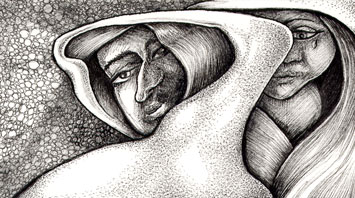What is the role of the critic in Art. I like to think
they are guardians of the Muse. Servants to the medium of which they write. Should a critic entertain their audience? Yes.
Ought they be thought-provoking? Please, yes. These are all things that make us look good.
But being a critic is not about looking good. Criticism is
communication fraught with obligation. There is the obligation to the artist to be honest, clear and constructive. There
is the obligation to the audience. After reading your review, when standing before the book shelf or theater billboard,
they should know the pros and cons of the choice they are about to make.
But the critic's truest obligation is to the medium about
which they write. If the artist is the beneficient of the Muse, we are their guardians; exposing the pretenders, extolling
the gifted. All the while remembering that we are not the story. We are not the artist, neither are we the Muse, we are at
the service of the art form itself. As such we have an obligation, to understand, if not feel affection for the medium about
which we write. We should write, not cynically or venomously but with the goal of raising the art form to all possible heights.
That at least is the aim (to be carried out less
melodramatically than written here) of critics who write for BOTP. We love art and artists. We embark on each new encounter
with one wish, to be completely blown away. If we aren't, we are smart enough to tell you how things went off course, without
boring you to death in the process. Our first reviews will appear soon.
